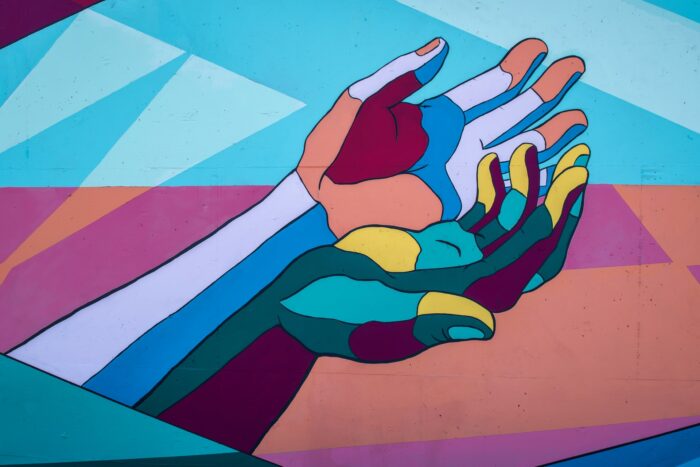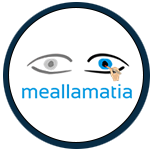The following article was published on diakopes.gr by Maria Hatzipetrou.
Translation from the original article in Greek: Georgia Karakechagioglou
Are vacations equal for everyone? What is accessible tourism and which are the most PwD-friendly destinations in Greece? These questions and many others were answered by two people who are knowledgeable on the topic.
We spoke with Vaggelis Avgoulas, one of the founders of the “Me Alla Matia” initiative, as well as his associate, Thalia Kiousi. Both of them guided us with their knowledge of tourism accessibility. The role of “Me Alla Matia” is particularly important since they organize accessible tourism programs, cooperate with many agencies and provide information through their accessible website.
- What is accessible tourism?
Vaggelis: Simply put, accessible tourism is when a person with an impairment (mobility, visual, and/or hearing) can go somewhere alone, without the need for guidance. Also, after going to that place, they should have options and be able to enjoy their stay, be entertained, and have fun.
- Do you think this exists in Greece?
V.: In the past couple of years, we have seen many encouraging shiftings towards this direction, from many municipalities nationwide. Of course, this happens because they realize that disabled people are constant consumers; meaning, people with a stable income who will never go on vacation alone, being aware of the obstacles. So, if they are happy with one place, they will prefer it again, knowing that there are not many options for them.
The issue of accessibility
Vaggelis emphasizes the following:
“When we talk about accessibility, a lot of people falsely think of people in wheelchairs and automatically imagine obstacles in the structured environment. So, if there are no ramps or if there is no way to access the sea with the sea track, and if there are no disabled toilets, these are considered to be accessibility problems. But we don’t only mean that. The lack of menus in Braille or QR codes to scan the menu, as well as the fact that an elevator in a hotel or public place does not announce the floors, all are accessibility problems. Even if there is room for a wheelchair in the elevator, the voice announcement problem makes it inaccessible. Therefore, it would be helpful for every tourist site to have a record of accessibility on its website. This way, the visitors will know in advance if they can overcome these obstacles. Many say “we are fully accessible since we have no stairs at all”. But for example, they may have a room where all the hangers are beyond reach for a wheelchair user. Thus, these places must report what they offer and what they don’t for every separate category of disability.”
- What is the reason for the delay in the matter of accessibility?
V: There was no strategic planning for accessible tourism. So, there were no organized efforts, encouragement, or proper guidance and education to make all of this a reality. However, many things were being done but fragmentarily in every municipality. Of course, all this must be gradually sorted out under an organized umbrella. Given that some things are not designed to be accessible in the first place, funding tools must be found to subsidize such efforts.
The experience of a PwD companion
Later on, Thalia opened up to us about her experience as a person who accompanies PwD:
“As a companion of wheelchair users, I saw that the process of booking a holiday for a disabled person was very long. It should have started a way earlier and we searched extensively to go anywhere, knowing that this “anywhere” would probably be abroad. As a matter of fact, in Greece, we almost always reject the islands (especially the smaller ones) except only Crete possibly. Of course, apart from examining if the final destination is accessible, we also have to pay attention to how we will get there.
Ideally, a business must have a website stating what it provides and not only whether it is accessible or not because they usually don’t know what this means. On many occasions, we have been thwarted and our research has been thrown in the trash because someone wrote that the business was accessible when it wasn’t.
However, since there have been some optimistic changes in this matter, nowadays there are Greek destinations that can welcome people who were previously excluded from these places. Therefore, destinations that stand out for their accessibility are Lemnos, Syros, Skiathos, or Rethymnon. Also, Komotini received the award “Special Mention for Accessibility as an Opportunity for the Whole City” at the European Access City Awards 2021.
The most accessible hotel we have found is in Chania and attracts many foreign tourists. It is fully accessible for everyone; imagine that a person can enter the pool with a wheelchair. Or even in Lemnos, we have seen a similar effort. In addition, on the island, there is an organized diving program for people with disability.”
- What exactly is “Me Alla Matia” doing towards the direction of accessible tourism?
We can train a hotel’s team to welcome disabled guests properly. We can assess and provide any information on the full spectrum of accessibility. There are already municipalities that have invited us since we have already been to Lemnos and Kalamata. Finally, we will soon visit Skiathos, where we will provide training.
- What other problems have you encountered?
V: I miss feeling with some information or at least some symbolic gesture that someone has thought of me in the tourist product they provide. I don’t want miracles to happen, I just want to know that someone has thought of me.
- What does vacation mean to you?
V: I would definitely like to somehow be able to read a description of the space I’m in; what the physical environment around me is like. I would still like to know if I can find accessible menus in the stores where I will be alone. And if I want to visit a cultural site, to be able to touch a replica, an exhibit.
At the end of our conversation, Vaggelis emphasized the following: “I think that the key is for anyone who wants to make a step further, to do it and build it from the beginning with disabled people. In other words, they shouldn’t plan for us without us, because mistakes happen.”




